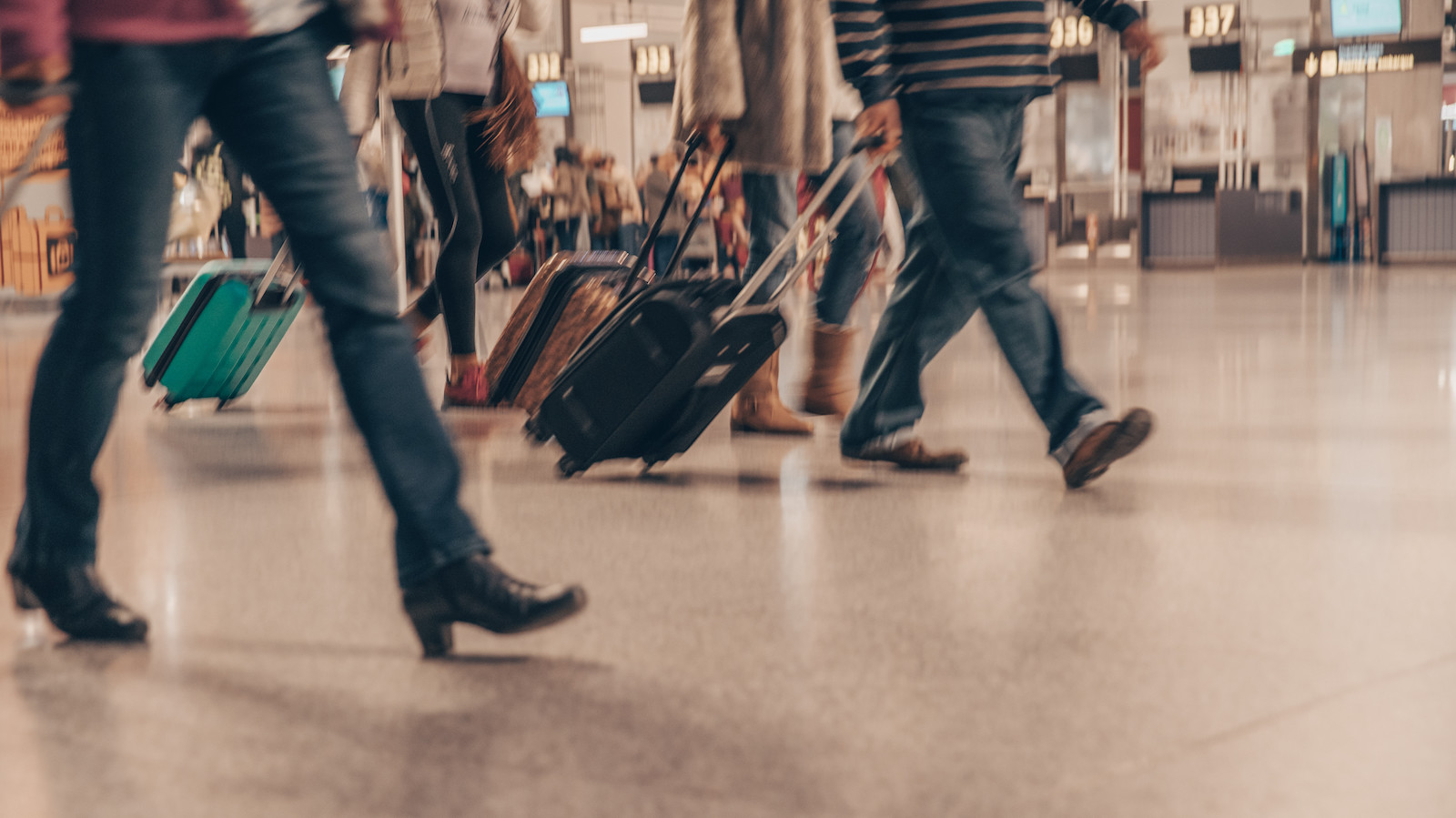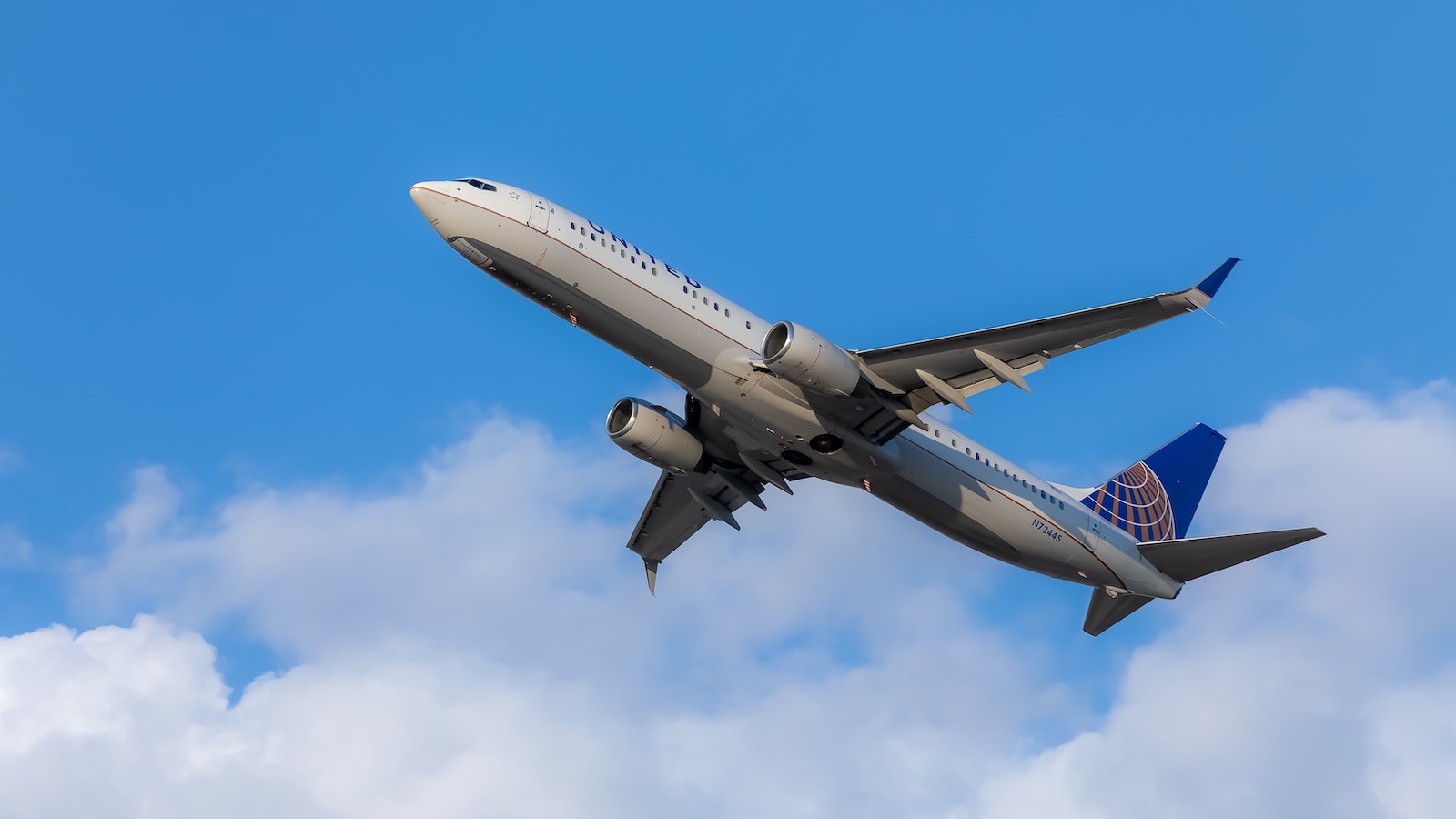
The Plane Truth 4
Complaints against U.S. airlines will break another record in 2023. Cancellations have improved, but delays, mishandled luggage and damaged wheelchairs are worse.

VIEW THE FULL REPORT
The complaints are pouring in. The Department of Transportation (DOT) has finally released details on passenger complaints for the first five months of 2023.
Following a record-breaking 2022, complaints against U.S. airlines more than doubled, increasing by 109% from January through May 2023 compared with the same period last year. Overall, complaints against the entire industry – U.S. and foreign airlines, travel agents and tour operators – increased by 68%. The number of passengers on U.S airlines for the same period is up about 14%.
What are travelers complaining about? Nearly 35% of complaints from January through May were about flight problems, meaning cancellations, delays or missed connections. Refunds – or the lack of – made up an additional 20% of complaints.
Complaints about lost or damaged baggage or wheelchairs came in third, at nearly 16% of complaints. These percentages are similar to what we saw throughout 2022.
Clearly, we’re on pace for another record year for complaints. The volume this year has so overwhelmed DOT’s Office of Aviation Consumer Protection that officials said they were unable to tally and release complaint data this year on anything close to their normal schedule, which is generally within six weeks after the end of a month.
The batch of complaints through May was released more than three months late. Complaints give regulators and travelers a window into the biggest problems, and the best and worst airlines. The question now is – in this fourth consecutive year of airlines angering customers in numbers never experienced before 2020 – what will regulators and lawmakers do about issues that clearly need to be addressed?
Key findings:
- Cancellations January through September improved significantly compared with the same period last year, dropping from 2.8% of flights to 1.6%. That’s great news.
- But delays are a bigger problem than in 2022, particularly when they cause passengers to miss connecting flights.
- Incidents of lost or damaged bags were up slightly over the same period last year, and were up significantly during the heart of the busy summer.
- The rate of mishandled wheelchairs is just as bad this year as last and was up the most recent two months for which data is available.
- Flights were more crowded: The number of flights January through September increased by 4%, but passenger volume increased by 11%.
All of this, and the fact that airports and airplanes aren’t likely to become less crowded anytime soon, makes it more important than ever for travelers to proactively try to avoid headaches, and know what to do if they occur.
Complaints against U.S. Airlines to hit new highs in 2023
COMPLAINTS MORE THAN DOUBLE AGAINST U.S. CARRIERS
For the first five months of 2023, travelers filed 38,135 complaints against U.S. and foreign airlines, travel agents and tour operators. That’s up 68% from the same period last year.
Of those, 26,312 were against U.S. airlines. That’s more than double the total from the same period last year.
To further demonstrate how large that number is: Until 2020, DOT had tallied more than 20,000 complaints against U.S. airlines only one time for the entire year. (That was in 2000.) So the complaints filed against U.S. airlines for five months this year topped the 12-month totals for any year before 2020.
Of the major categories, complaints about cancellations/delays and mishandled baggage more than doubled for the first five months of 2023 compared with 2022.
Complaints about refunds declined by nearly 12%, but there were still more than 7,500. For sure, that’s far less than the nearly 90,000 refund complaints filed in all of 2020. But it’s unacceptable that there are any issues with refunds being issued promptly when a flight is canceled, especially when it’s the law.
Other categories of complaints include: fares, reservations/ticketing, customer service, disability, bumping, discrimination, advertising and animals.
BEST AND WORST AIRLINES FOR COMPLAINTS
A key set of data in the monthly reports looks at the volume of complaints for the largest airlines, per 100,000 boarded passengers. This gives us an apples-to-apples view, regardless of the size of the airline. For May, DOT looked at the 15 U.S. operating airlines with at least 0.5% of total domestic scheduled service passenger revenues.
It’s important to realize that complaints to DOT are supposed to be filed only by travelers who had an issue and couldn’t get it resolved through the airline.
In May, the latest month available, Republic fared best, followed by SkyWest, Alaska and Southwest. All had complaint ratios of less than 2 per 100,000 boarded passengers. Republic is a codeshare partner airline for American, Delta and United. SkyWest is a partner airline for Alaska, American, Delta and United.
On the other end, Frontier’s ratio of complaints was more than 16 times higher than the four best, at 33.5 per 100,000. Besides Frontier, Spirit also had double-digit complaint ratios each month for January through May.
Meanwhile, there was wide variance among the four largest airlines. Southwest fared best, followed by Delta. American’s and United’s ratios were more than twice as high as Delta’s.
Frontier’s complaint ratio is worse than what the budget carrier posted last year. For all of 2022, Frontier Airlines had 20.3 complaints per 100,000 boarded passengers. That was twice as high as the next airline and more than three times higher than Frontier had in 2021.
We know that only a fraction of consumers actually file complaints about anything – It’s just human nature – even though the process through DOT is easy online or by phone. Travelers can file complaints against U.S. airlines, foreign airlines, travel agents, tour operators or others.
Airlines are then required to acknowledge complaints filed with the DOT within 30 days and respond in writing within 60 days. Ticket agents are also expected to respond to consumer complaints, although there’s no timeline for replies.

Airline travel tips you shouldn’t fly without
COMPLAINTS AGAINST TICKET AGENTS DECLINE
While complaints filed against foreign airlines from January through May also increased, by 37%, complaints against ticket agents from January through May, declined by 38%. Consumers filed 1,720 complaints, down from 2,767 during the same period the year before.
Some of the more popular online ticket agents include Booking.com, Expedia, Priceline and Travelocity.
This follows a few rough years for travel/ticket agents. Starting in 2020, they were blasted for not issuing refunds promptly when flights were canceled en masse during COVID and thereafter because of issues with airline staffing or bad weather.
While the third-party websites can help travelers find great deals on airline tickets (as well as hotels and other travel options,) the companies often finger-point when a refund is legally owed.
Airlines are required to refund tickets for canceled flights within seven days if paid by credit card; no such deadline exists for ticket agents. In some cases, the ticket agents haven’t yet been refunded by the airline. In some cases, they’re just dragging their feet. It’s a huge issue that needs to be addressed.
As with airlines, the DOT expects ticket agents to respond to complaints filed with the regulator. But unlike airlines that have deadlines, ticket agents have no timelines to respond to customers. For a glimpse at the largest players the chart below shows complaints filed with DOT in January.
AVOIDING A REPEAT OF CHRISTMAS 2022
As we go into another holiday travel season, we’re all hoping we don’t have another meltdown, as occurred over the Christmas holidays last year. Poor planning, combined with a winter storm and a technology disaster at Southwest Airlines, ruined holiday plans for millions of families. More than 25,000 flights were cancelled from Dec. 22 through Dec. 29, 2022. Too many families spent the holiday weekend sleeping on the floor in airports. Many travelers missed the holidays with loved ones. Others couldn’t get home for several days after the storm. For December overall, 5.4% of flights were canceled, triple the norm.
To get an idea of what could happen this Christmas, we can look at 2023’s busy summer travel season – June, July and August. For virtually all issues that DOT reports publicly, it provides data for the 10 largest airlines and their codeshare marketing partner airlines; some of the larger partners include SkyWest, Republic, Envoy, Endeavor and PSA.
In 2023, on-time performance for the 10 largest airlines and their partner airlines was worse in June and July but better in August, compared with 2022. On-time performance reflects domestic flights that weren’t canceled or delayed by more than 15 minutes.
With on-time arrivals, it may not matter much if a flight arrives late by less than 15 minutes, but more than 25% of flights arrived late this summer, by an average of 57 minutes, according to information from FlightAware. A delay of nearly an hour can and often does make the difference between catching or missing a connecting flight. That can have a whole domino effect on various airlines and travelers for whom missing a flight could mean they miss a wedding, a cruise or other important event.
SUMMER 2023 FLIGHTS IN U.S.
BEST AND WORST AIRLINES FOR ON-TIME PERFORMANCE AND CANCELLATIONS
For on-time performance, for January through September 2023, the 10 largest airlines and their partner airlines collectively posted a slightly worse record – 76.2% compared with 76.5% in 2022. This means that nearly one in four flights did not arrive on time through September. That added up to nearly 1.3 million flights.
Delta had the best on-performance for the January through September timeframe, at 81.2%. Frontier had the worst, at 63.2%.
This past summer, the top 10 airlines and their partner airlines posted an average on-time arrival performance of 71.3% in June, 69.6% in July and 77.2% in August.
For June, July and August, the three best airlines were the same each month, although the order varied: Alaska, Delta and Hawaiian. All had on-time performances well above the averages. The three airlines with the worst on-time performance were also same every month of the summer, although again, the order varied: Frontier, Jetblue and Spirit. All had on-time performances well below the averages.
July had the greatest range in on-time performance, with Hawaiian Airlines’ on-time performance at 82.5%. At the bottom, Jetblue Airways had an on-time performance of 49.5%.
The latest performance data available as of Dec. 14 was for September.
Read more
Meanwhile, the cancellation rates for the top 10 and their partner airlines was 2.1% for June, 2.5% for July and 1.5% for August.
With cancellation rates, below 1% is great. Higher than 3% isn’t good.
For those three summer months, Alaska and Allegiant were among the best every month, with cancellation rates of 1% or less. Southwest posted cancellation rates of less than 1% in June and July. And Hawaiian and United had a cancellation rate of less than 1% for one month of the summer.
On the flip side, Frontier and Jetblue had among the worst cancellation rates each of the three months, at 3.9%, 4.5% and 5% for Frontier and 3.5%, 6.8% and 2.9% for Jetblue. United had cancellation rates exceeding 3% two of the summer months.
For the year to date available, January through September 2023, 1.6% of flights were canceled among the 10 largest airlines and their partner airlines, much better than the 2.8% cancellation rate for the same period last year and the best in the last six years.
However, that still means that 88,419 flights were canceled for a variety of reasons through the first nine months of 2023. Sometimes it’s bad weather. Sometimes it’s staffing or equipment issues. Sometimes the reason isn’t publicly known.
All of that said, we don’t know the actual number of flights canceled this year (or any day) because the DOT doesn’t tally them unless they’re canceled within a week before departure. When a flight gets canceled more than seven days in advance, DOT considers it “discontinued,” not canceled. And DOT doesn’t track them. The airlines still owe customers refunds, but there are no consequences.
So while a flight that gets canned eight or 10 days before your trip might be a hassle to rebook – possibly facing higher prices or no available seats – it doesn’t count against the airline. This little-known fact about “discontinued” flights had been kept largely under wraps until cancellations started becoming such an enormous problem last year. Even some veteran consumer advocates didn’t learn this until 2022.
Yes, airlines are held accountable if they have too many canceled flights, but not the ones DOT doesn’t track.
This overlaps with another issue that popped up in the last year: A DOT investigation into four domestic airlines for possible “unrealistic scheduling.” The investigation was announced in February. One of the airlines is Southwest; the other three aren’t publicly known. Unrealistic scheduling is considered an unfair and deceptive practice. It’s not publicly known what sanctions, if any, that an offending airline might face.
MORE PEOPLE ARE FLYING
Continuing the trend we’ve seen since 2020, millions more people are flying every month than flew in the same month the year before. From January through September 2023, the number of boarded passengers soared to nearly 700 million, up from about 625 million during the first nine months of 2022.
If you’ve flown this year and thought the flights seemed more crowded, it wasn’t your imagination. The number of flights January through September increased by 4% over 2022, but the number of boarded passengers increased by 11%.
Airline travel is on pace to hit a new record high in 2023. The previous all-time high on U.S. airlines was between 927 million and 928 million passengers systemwide (domestic and international) in 2019. Given the 11% increase in boarded passengers this year, even if volume the rest of 2023 increases by only half of that compared with last year, that would surpass 2022’s total.
MORE PEOPLE ARE GETTING BUMPED
Yes, flights are fuller these days. To maximize revenue, airlines are allowed to and often do oversell tickets. They calculate, based on algorithms, that a certain number of passengers won’t show up for a specific flight, either for personal reasons or because their previous flight arrived too late for travelers to catch the connecting flight. Those no-show predictions often hold close to reality.
But when too many passengers do show up for a particular flight, airlines usually ask for volunteers and offer another flight plus compensation of varying amounts to those who give up their seats willingly. If there are still more passengers than seats, the airline starts bumping people involuntarily (although they are still due compensation by law, up to $1,550 per person if they are delayed getting to their destination by more than two hours.)
The DOT reports bumping stats every quarter. The just-released January through September data show the number of passengers who boarded the top 10 airlines and their partner airlines increased by 11%, to 644.6 million.
Nearly 8,000 passengers were bumped involuntarily from July through September 2023. The ratio bumped involuntarily from July through September increased notably, from 0.22 per 10,000 passengers last year, to 0.35 per 10,000 passengers this year.
LOST AND DAMAGED LUGGAGE, WHEELCHAIRS AND SCOOTERS
You can gauge problems with luggage, wheelchairs and scooters checked on planes by looking at complaints filed by passengers and incidents recorded by the DOT.
Incidents include only items checked on direct flights, not connecting ones. DOT tallies baggage as mishandled if it’s lost, delayed, damaged or has items missing.
For the summer – June, July and August – the 10 largest airlines and their partner airlines handled 130.2 million checked bags. The rate of mishandled bags was marginally better in June and August compared with a year ago, but significantly worse in July.
It was also significantly worse in September 2023 than the year before, with 198,256 bags mishandled out of 37.4 million checked.
For January through September, the mishandled bag rate was a hair higher, 0.62 per 100 in 2023 compared with 0.61 per 100 in 2022. What that means in real terms: of the 362.6 million checked bags, 2.25 million were lost or damaged.
On the complaint side, consumers filed nearly 6,000 complaints about lost and damaged baggage in the first five months of 2023, more than 2-½ times more than in the same period last year. In fact, the January-May complaint total for 2023 was two to three times higher than for the entire year for 2018, 2019, 2020 and 2021.
Wheelchairs and scooters
Problems with wheelchairs and scooters are also tallied by the DOT. Compared with the year before, incidents of mishandled wheelchairs and scooters declined in June and July 2023 but increased in August and September.
Overall, from January to September 2023, the ratio of mishandled wheelchairs and scooters was a tinge lower than for that period in 2022, declining slightly from 1.41 to 1.40 mishandled per 100.
What does this mean? Passengers checked 617,537 wheelchairs and scooters, a significant increase from the same period the year before. Of those, 8,637 wheelchairs and scooters were lost, misplaced or damaged.
LOST AND DAMAGED ITEMS
From January through September 2023:
- 2.25 million checked bags were lost or damaged.
- 8,637 wheelchairs or scooters were lost or damaged.
From January through May (the latest data available):
- Nearly 6,000 consumers filed complaints about lost or damaged baggage.
Reimbursement:
If travelers’ bags are lost, pilfered or delayed, they do have rights, including reimbursement for lost items up to $3,800.
Wheelchairs, CPAP machines, medications and other “assistive devices” are not subject to the $3,800 liability limit on domestic flights. Limits may vary on international flights.
In just September 2023, a total of 1,035 were mishandled, and the mishandled ratio was up notably, from 1.36 in 2022 to 1.42 per 100.
The DOT wants to step up enforcement against airlines for mishandling a wheelchair. The DOT has proposed a new rule that would “make it an automatic violation of the Department’s Air Carrier Access Act regulations for airlines to mishandle a passenger’s wheelchair.” The DOT is also exploring the possibility of allowing passengers to stay in their own wheelchairs on airplanes.
RECOMMENDATIONS
More than three full years after the pandemic hit and Congress gave the airlines $54 billion to keep them afloat, some aspects of air travel are on a better trajectory. Cancellations have improved compared with 2022, to the extent we know how many flights are truly being canceled, because DOT tallies only those within one week before departure.
But delays have gotten worse compared with last year. And we have more cases of lost or damaged baggage. Finally, complaints for the first five months doubled compared with 2022. This means that even when problems are brought to the airlines’ attention, they’re not resolving them.
Here are some of the things that need to happen to improve air travel:
- Airlines should focus on realistic scheduling, fast refunds for canceled flights, transparent pricing upfront instead of add-on gotcha fees, and quick resolution of problems so consumers don’t need to file a complaint.
- DOT should focus more on accountability from the airlines, particularly regarding scheduling, excessive cancellations and delays, slow-rolled refunds and disproportionately high complaint volume.
The complaint volume paints a clear picture of where change is needed most, both in terms of the airlines with the most unresolved problems and the practices at various airlines that generate the most complaints.
Frontier had the worst complaint record for the first five months of 2023, and all of 2022. Spirit had the second worst record for four of the five months of 2023 and for all of 2022.
And DOT knows what travelers are complaining about: cancellations, delays, refunds and mishandled baggage.
In Februrary 2023, the DOT said it launched “a rigorous and comprehensive investigation” into possible “unrealistic scheduling” by four airlines, including Southwest, which had a meltdown over the Christmas holidays last year.
Unrealistic scheduling is regarded as “an unfair and deceptive practice” under federal law, DOT said. We haven’t learned about any findings or actions as of Dec. 9. It’s irresponsible and harmful if airlines sell tickets to flights in bad faith, because last-minute cancellations can wreak havoc on travelers’ lives and wallets.
- On that note, DOT should revise its definition of a canceled flight to include more than just those canceled within seven days of the departure date. Right now, those are considered “discontinued flights” and DOT doesn’t even tally them nor are airlines accountable for them, despite the disruption they can cause.
- In its enforcement action in November 2022 against six airlines – Frontier and five foreign carriers – for taking too long to issue $600 million in refunds, DOT said the $7.25 million in civil penalties wouldn’t be the last ones if the airlines don’t do better and issue timely refunds as legally required.
DOT in 2023 did take action against five other foreign airlines:
- British Airways: $1,100,000 in civil penalties for not issuing refunds promptly after canceling or significantly changing flights to or from the United States from March to November 2020. DOT received 1,200 complaints; British Airways received thousands of additional complaints and requests, DOT said.
- Air Transat: $525,000 in civil penalties for not issuing refunds promptly for flights canceled from March to November 2020. Instead it provided credits. It was not until April 29, 2021 that it allowed consumers who still held those credits to get refunds. DOT received more than 150 complaints.
- Scandinavian Airlines System: $750,000 in civil penalties for not issuing refunds promptly for flights canceled or significantly changed since March 2020. DOT received more than 700 complaints. The airline received thousands of additional complaints and requests.
- LATAM Airlines Group: $1,000,000 in civil penalties for not issuing refunds promptly after cancelling flights between the United States and certain South American countries from March 2020 through at least November 2021. The company required consumers who requested refunds to obtain a voucher first and then exchange that for cash by means of a bank transfer, which often took more than 100 days. DOT received more than 750 complaints.
- Swoop $175,000 in civil penalties for not issuing refunds promptly for flights canceled from March to October 2020. Refunds for thousands of customers took more than 100 days. DOT received about 250 complaints.
So far, enforcement against U.S. airlines included only one airline – Frontier. We know that other U.S. carriers also dragged out refunds, if they were ever provided, or pushed consumers to vouchers or credits instead of requested refunds. Slow issuance of refunds is in fact still a problem. Consumers need the DOT to do more on this issue and hold airlines accountable.
- DOT should also demand more accountability from third-party online ticket sellers, who make up a growing percentage of the market but often are a nightmare to deal with if a customer wants a refund for a canceled flight, or needs to rebook a canceled or delayed flight. In some cases, the ticket sellers or travel agents may not yet have the money back from the airline. DOT needs to intervene because, for sure, travelers shouldn’t be the victims here.
- And DOT should do everything it can to make sure the skies have an adequate number of air traffic controllers. Airlines blame some issues on shortages here.
- Pilot shortages are also blamed for some of the cancellation/delay issues. All parties should work together to address this.
- Congress should allow state attorneys general to enforce federal consumer protection laws involving the airlines. The states want to and should be able to do this, but they can’t. Airlines are just about the only industry that is protected from state enforcement of consumer protection laws. And a bipartisan group of 35 state attorneys general signed a letter to Congress on this issue in August 2022.
- The DOT has done a great job the last two years of pushing the major carriers to adopt new passenger-friendly policies, such as family seating so young children can sit next to an adult companion at no additional charge. Other policies deal with the airlines’ commitments in cases of cancellations and delays under the airlines’ control.
The DOT’s flightrights.gov dashboard clearly displays each airline’s policy on various issues. Further, once the airlines have made a promise like this to the DOT, it becomes part of their contract and, while they can change their policy, they can’t go back on it for tickets purchased while that policy was in effect. The hope is that pressure from travelers – who know who offers what – pushes more airlines to adopt such practices.

Take the next step to help support our work.
Using the time-tested tools of investigative research, media exposés, grassroots organizing, advocacy and litigation, PIRG, a 501(c)(4) organization, stands up to powerful interests and delivers concrete results. But we need your support to keep our work going strong.
As threats to the public interest grow, our work becomes more important every day. Every contribution powers our research, fuels our advocacy, and sustains our future.
Topics
Authors
Teresa Murray
Consumer Watchdog, U.S. PIRG Education Fund
Teresa directs the Consumer Watchdog office, which looks out for consumers’ health, safety and financial security. Previously, she worked as a journalist covering consumer issues and personal finance for two decades for Ohio’s largest daily newspaper. She received dozens of state and national journalism awards, including Best Columnist in Ohio, a National Headliner Award for coverage of the 2008-09 financial crisis, and a journalism public service award for exposing improper billing practices by Verizon that affected 15 million customers nationwide. Teresa and her husband live in Greater Cleveland and have two sons. She enjoys biking, house projects and music, and serves on her church missions team and stewardship board.
Find Out More

Food for Thought 2024

Is Alexa always listening? How to protect your data from Amazon

Safe At Home in 2024?
